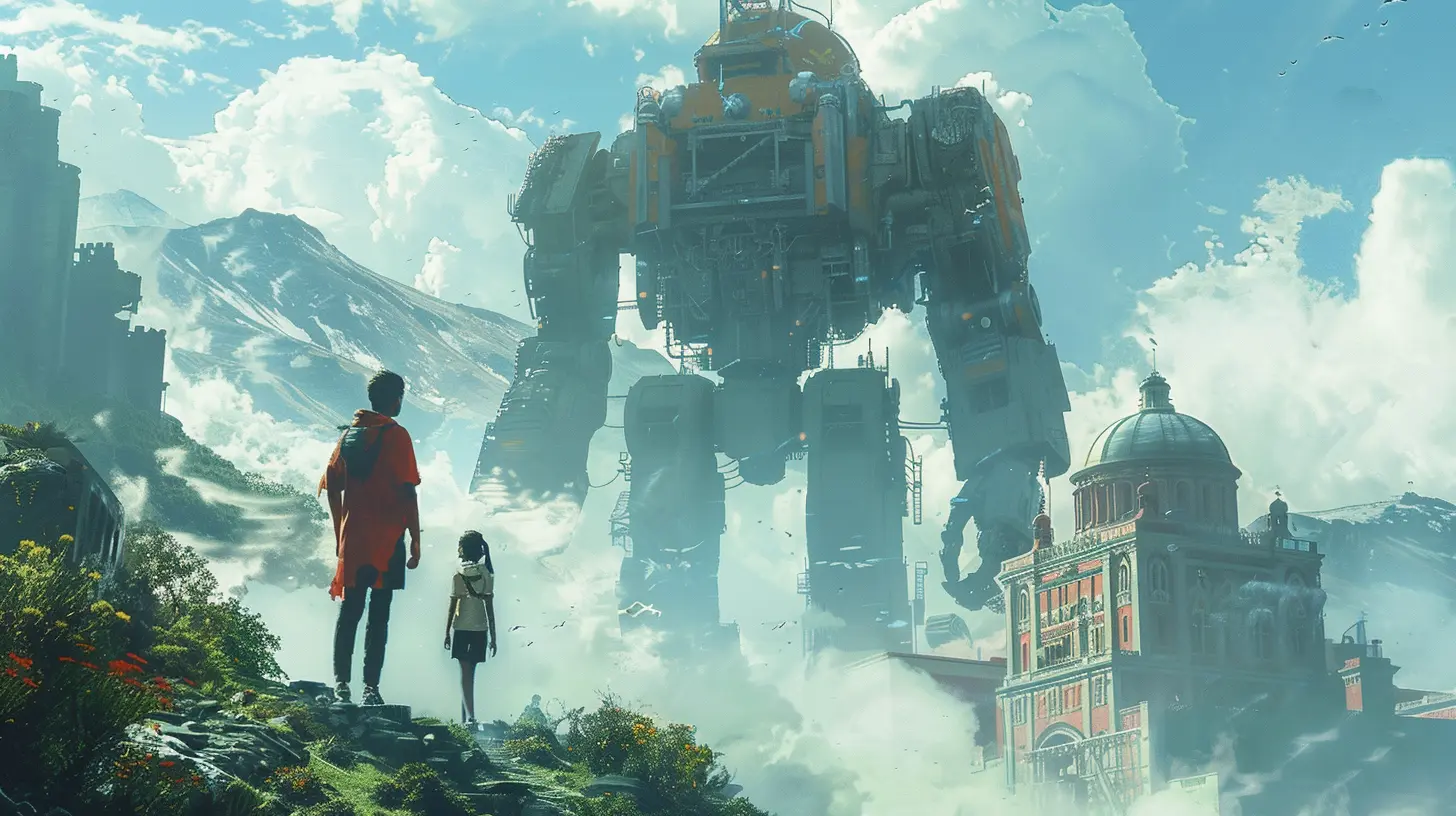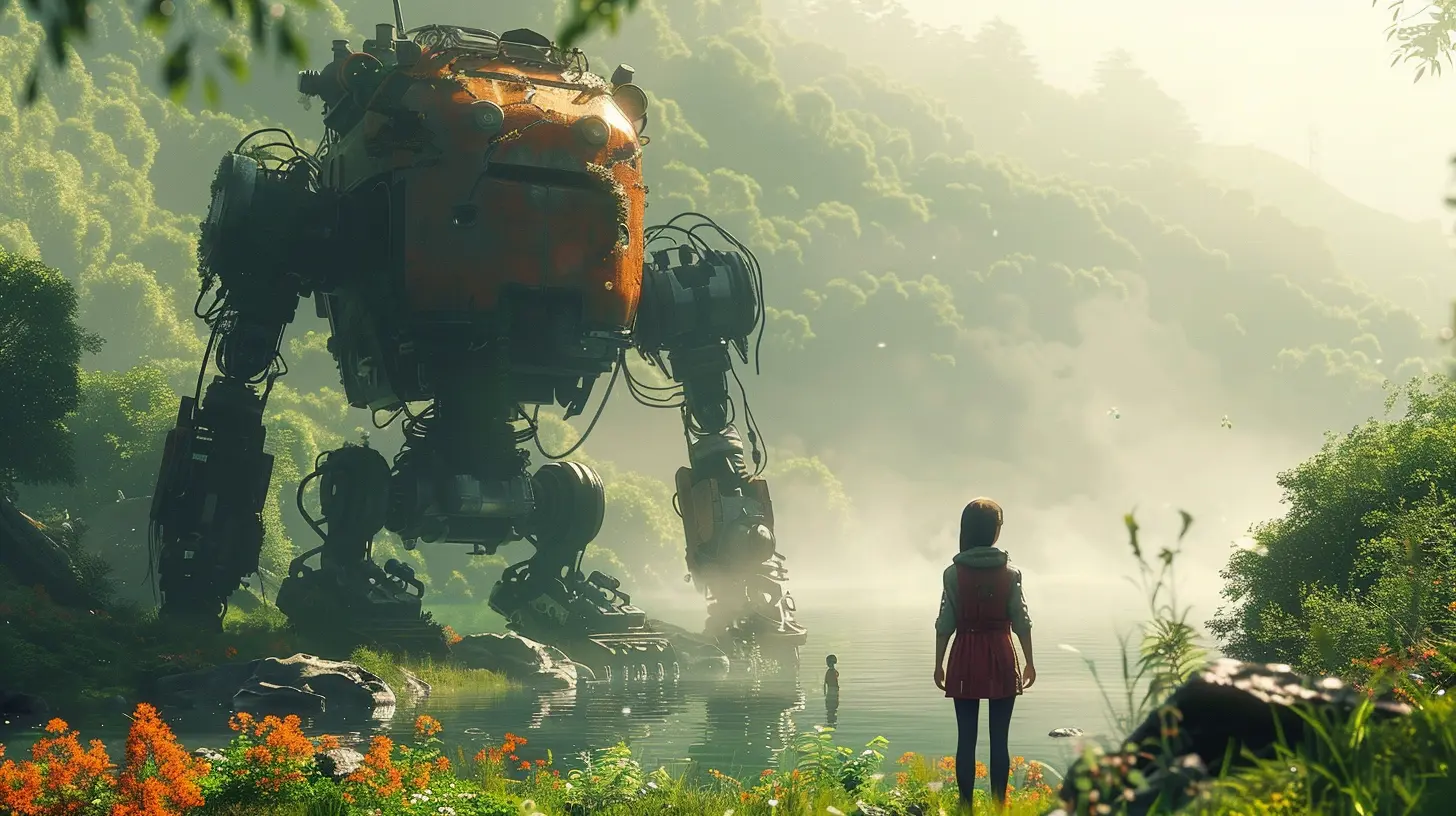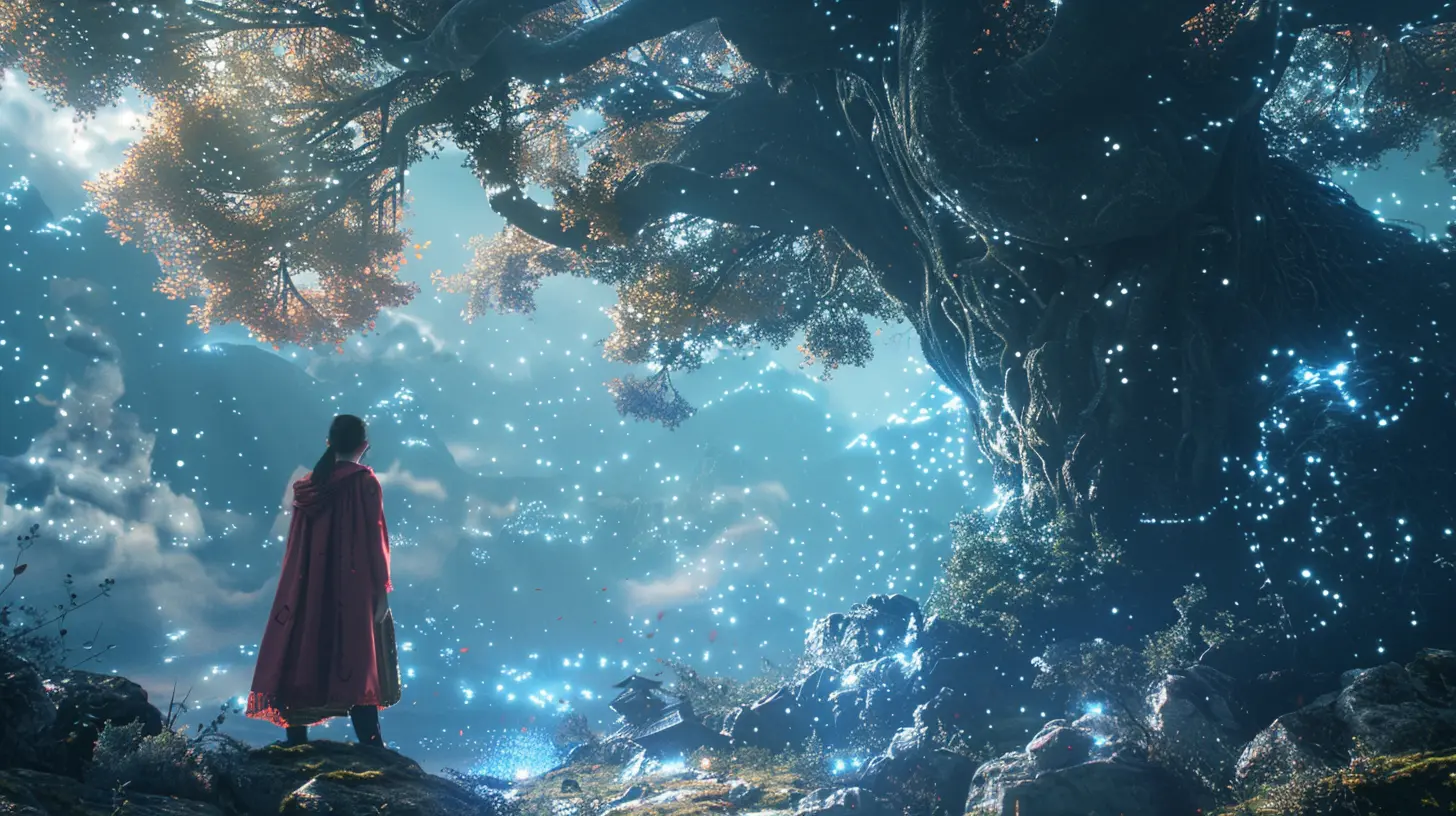The Future of Storytelling: AI-Driven Narratives in Games
25 May 2025
Once upon a time—because that's how all the coolest stories start—game narratives were linear. You’d follow a pre-determined path, watching events unfold predictably, like walking through a movie on rails. Sure, they were enjoyable, but as gamers, didn’t we all secretly crave something more personalized? Something that felt like the game was crafting the story around us rather than the other way around? Enter AI-driven narratives—the next-gen storytellers of the gaming world. These aren't your typical quest givers or NPCs (non-playable characters) reciting the same line like a broken record. We’re talking about dynamic worlds that respond, adapt, and evolve based on your choices.
Sounds cool, right? Let’s dive deeper into how this tech revolution is reshaping game storytelling and why the future has never looked so… immersive. 
Gaming Meets Storytelling: A Match Made in Digital Heaven
For decades, gaming has been a playground for storytelling innovation. From pixelated adventures in The Legend of Zelda to epic sagas like The Witcher 3, stories in games have kept us hooked for hours (read: nights without sleep). But no matter how engaging, most games eventually boil down to one thing: a predictable narrative structure.Even the most elaborate branching storylines, like in Mass Effect, essentially offer a handful of possibilities—each mapped out long before you ever pressed 'Start.' While impressive, these are still pre-written paths. What if, instead of choosing between Door A or Door B, the game just… made a new door for you? That’s where AI comes in.
AI doesn’t just want to tell you a story. It wants to create one with you—on the fly. And honestly, this might be the biggest leap in gaming since developers decided players should be allowed to jump. 
What’s an AI-Driven Narrative, Anyway?
Okay, let’s unpack this. An AI-driven narrative is all about storytelling that's generated in real time. Think of it like an improv actor who adapts their performance based on your actions—a sort of “choose your adventure” on steroids. Except instead of flipping through pre-written options, the AI crafts unique scenarios, dialogue, and outcomes on the spot.It’s like having an invisible Game Master, similar to those you’d encounter while playing Dungeons & Dragons, except this one works 24/7, doesn’t need coffee breaks, and scales its creativity to infinity. 
How Does AI Pull This Magic Off?
Good question! It all boils down to a blend of machine learning, data analysis, and natural language processing. Let me break it down for you:1. Learning Your Playstyle
AI tracks how you interact with the game. Always going for the peaceful option in dialogue? Love exploring every nook and cranny of the map? These patterns help the AI tailor the story specifically for you. It’s like the game knows you better than you know yourself.
2. Dynamic World-Building
Remember how some old-school RPGs had pre-set events that triggered no matter what you did? With AI, events unfold based on the choices you’ve made. Didn’t save the village from a monster attack two hours ago? Expect to see some serious consequences down the line.
3. Procedural Storytelling
This is where things get extra technical (but we’ll keep it simple). AI can generate environments, characters, and events in real time. It’s like playing through a novel that writes itself with every step you take.
4. Dialogue That Feels Human
Thanks to Natural Language Processing (NLP), AI can whip up conversations that actually sound… well, human. None of that awkward, robotic chatter anymore! NPCs might even crack jokes or comment on decisions you made five hours ago. 
Games Already Pioneering This Future
You might be wondering: “Is this just a pipe dream, or is it already happening?” Spoiler alert: It’s happening. AI-driven narratives are slowly weaving their way into modern games, and some developers are already miles ahead in the game (pun intended).1. AI Dungeon
This one’s a no-brainer. Built almost like a text-based RPG, AI Dungeon uses GPT-based AI to create stories that adapt entirely to your input. Want to charm a dragon or punch a wizard? Go for it. No pre-written script holds you back.2. Middle-Earth: Shadow of Mordor/War
Okay, so this isn’t full-blown AI-driven storytelling (yet), but its Nemesis System is close. The game generates unique rivalries and storylines depending on your encounters with orc captains. Beat one up? He might come back stronger. Get defeated by one? He’ll gloat about it the next time you meet.3. Cyberpunk 2077 (Modded Versions)
While the base game relies on traditional narrative structures, modders have started integrating AI-driven chat systems, allowing NPCs to hold unscripted (and surprisingly meaningful) conversations with the player.Why Gamers are Hyped for AI Narratives
Let’s face it: gaming is about escapism. We want to dive into worlds that feel alive, unpredictable, and entirely our own. With AI-driven narratives, that dream becomes so much more tangible. Here’s why players are buzzing:1. Endless Replayability
No two playthroughs are the same. AI keeps the game fresh by crafting new twists, outcomes, and character arcs each time you play. Goodbye, redundancy!
2. Deeper Immersion
When NPCs react to you like real people and stories evolve organically, you stop playing the game and start living it. It’s like stepping into your own blockbuster film.
3. Unpredictability
Admit it: you hate when you can see a plot twist coming from a mile away. AI thrives on unpredictability, keeping you on your toes and guessing where the story might go next.
The Challenges Ahead (Because Life’s Not a Perfect Fairy Tale)
Of course, no revolution is without its hurdles. AI-driven narratives, while exciting, still face some pretty big challenges:1. Complexity
Creating a fully AI-driven game requires a ton of computing power, coding expertise, and testing hours. We’re talking next-level effort here.
2. Ethical Concerns
AI systems learn from datasets, but what happens when those datasets are flawed or biased? Without proper regulation, there’s a risk of the AI generating problematic content.
3. Loss of Creative Control
Some developers worry that handing storytelling reins over to AI could stifle human creativity. After all, doesn’t part of gaming’s magic come from hand-crafted narratives?
The Future: Where Do We Go from Here?
So, what’s next? Well, AI is already paving the way for unimaginable possibilities. Here’s how things might evolve over the next decade:1. Hyper-Personalized Stories
Imagine a game that adapts everything—not just the narrative, but the world itself. AI could create environments, cultures, and histories based on your personal preferences.
2. Collaborative Storytelling
AI won’t replace human writers; it’ll work with them. Think of it as a co-author, helping developers explore ideas, flesh out worlds, and test infinite possibilities.
3. New Genres
With AI at the helm, we might see gaming genres arise that we couldn’t even dream of today—interactive experiences that blur the line between game, movie, and personal journal.
Wrapping It Up
AI-driven narratives are more than just a shiny new tech trend—they’re the future of gaming. They promise to take storytelling to incredible new heights, offering experiences that are personal, immersive, and endlessly surprising. Sure, there are challenges ahead, but isn’t that what makes every great story worth telling?The best part? We’re not just players here. We’re co-authors, weaving our actions into the fabric of the worlds we explore. And if that’s not cool, honestly, what is?
all images in this post were generated using AI tools
Category:
Interactive StorytellingAuthor:

Stephanie Abbott
Discussion
rate this article
3 comments
Kai Kline
Oh sure, because who doesn’t want a robot crafting deep, emotional arcs for a pixelated hero? Nothing says “immersive experience” like AI-generated dialogue that sounds like it was written by a toaster. Can’t wait for the plot twists!
June 5, 2025 at 2:47 AM

Stephanie Abbott
I appreciate your skepticism! While AI may not fully replace human creativity, it can enhance storytelling by generating new ideas and possibilities. It's all about collaboration, not replacement.
Paul Dodson
This article offers a fascinating glimpse into the future of storytelling in gaming. The potential for AI-driven narratives to enhance player engagement and create dynamic experiences is exciting. I'm eager to see how developers will integrate these technologies while maintaining the depth and emotional resonance of traditional storytelling. Great read!
May 27, 2025 at 3:21 AM

Stephanie Abbott
Thank you for your thoughtful insights! I'm glad you found the exploration of AI-driven narratives engaging. It will be exciting to see how these innovations evolve while preserving the emotional depth of storytelling.
Brick McKinley
This topic is fascinating! AI-driven narratives have incredible potential to create immersive, personalized experiences in gaming. Excited for the future!
May 25, 2025 at 5:17 PM

Stephanie Abbott
Thank you! I’m glad you find it fascinating. The potential for AI in storytelling truly opens up exciting possibilities for gaming experiences!



